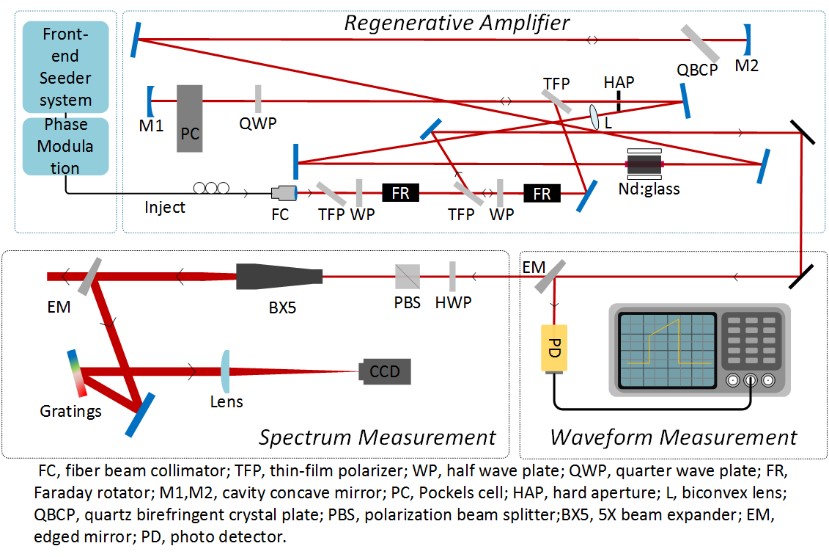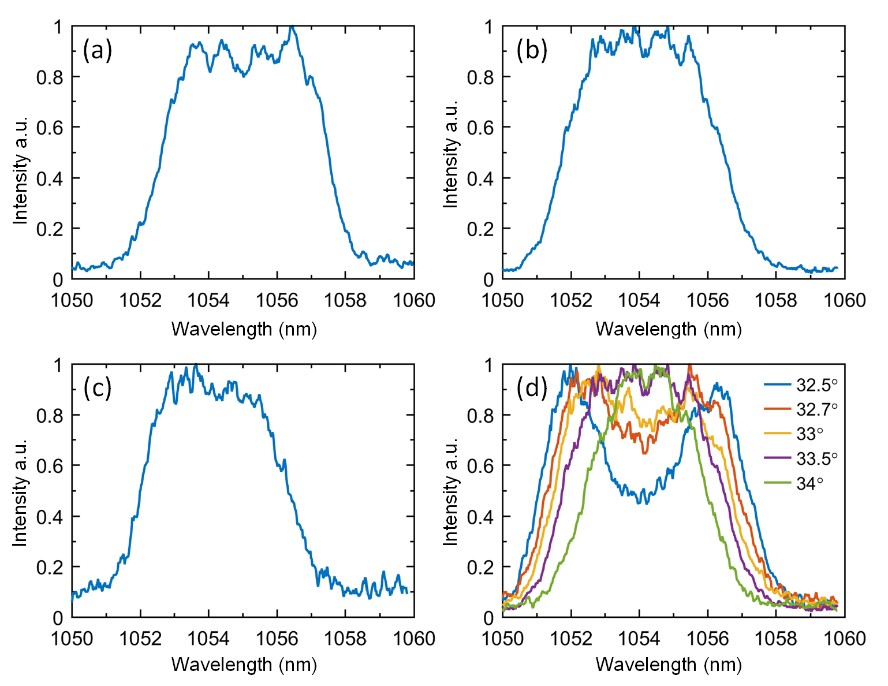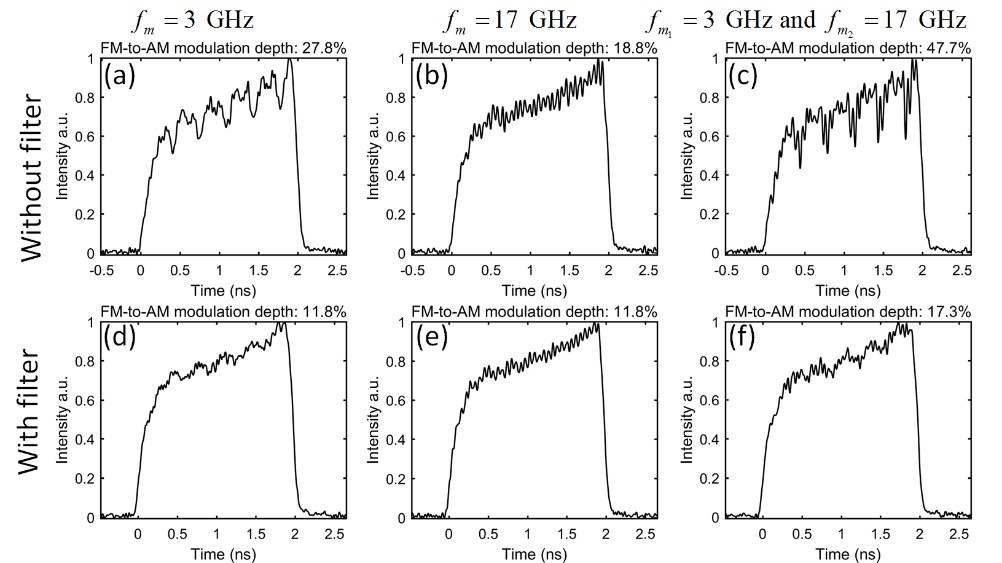In a high-power inertial confinement fusion (ICF) laser driver, the phase modulation module is typically introduced in the front-end seed source system to spectrally broaden the single longitudinal mode laser. After the phase-modulated (frequency modulation, FM) broadband light passes through an optical component with non-uniform spectral transmittance, the spectral structure is destroyed, resulting in temporal amplitude modulation (AM) of the output pulse. FM is partially converted into AM, which is called FM-to-AM conversion.
As a high-gain, high-power multi-pass amplification system, the regenerative laser amplifier is a substantial supporting equipment for the pre-amplification unit of the laser driver. In order to suppress the FM-to-AM conversion introduced by the regenerative laser amplifier, spectral compensation is realized by the internal or external addition of a spectral filter to the cavity. Birefringent crystal filters are flexible, stable, and easy to fabricate, and they can be used to compensate the gain narrowing effect in a regenerative amplifier.
Recently, a research team, led by Professor LI Xuechun from Key Laboratory of High Power Laser and Physics, Shanghai Institute of Optics and Fine Mechanics of the Chinese Academy of Sciences conducted a project, in which they demonstrated that a broadband Nd:glass regenerative laser amplifier system can suppress the FM-to-AM conversion, as shown in Fig.1.
The designed parameters of the birefringent quartz crystal were optimized by a theoretical simulation and the designed birefringent quartz crystal was inserted into the regenerative cavity. The FM-to-AM conversion induced by the gain narrowing effect was theoretically simulated at two different input center wavelengths.
In the experiment, the broadband seed pulse was injected into and then amplified by the broadband regenerative amplifier. The flat-top area of amplified gain spectrum was broadened up to ~3.7 nm, as shown in Fig. 2; and the temporal modulation depth was reduced from 47.7% to 17.3% at a center wavelength of 1053.328nm, as shown in Fig.3.
The experimental results show that the FM-to-AM conversion induced by the Nd:glass regenerative laser amplifier was effectively suppressed by the proposed filter. Moreover, the broadband regenerative amplifier has a potential to improve the performance of pre-amplifiers in large-scale laser facilities.
This research, entitled “Suppression of FM-to-AM conversion in broadband Nd:glass regenerative amplifier with intra-cavity birefringent filter” has been published on 10 February 2019 at the Applied Optics.
This work was funded by the Shanghai Science and Technology Foundation for Young Scholars (Grant No.17YF1429600) and the Chinese National Natural Science Foundation (Grant No. 61705242).

Fig. 1 Schematic of the complete system

Fig. 2 Output spectra of the regenerative amplifier.

Fig. 3 Amplified output temporal waveform from regenerative laser amplifier. (Images by SIOM)
Article website:
https://www.osapublishing.org/ao/fulltext.cfm?uri=ao-58-5-1261&id=404712
Contact:
Mr. Cao Yong
General Administrative Office
Shanghai Institute of Optics and Fine Mechanics, CAS
Email: caoyong@siom.ac.cn







